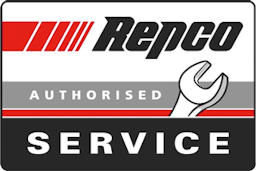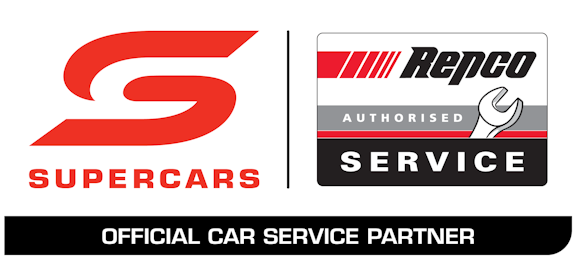How to pass a roadworthy Inspection in Huonville
As a car owner, it is important to understand what a roadworthy inspection is and what maintenance is needed to pass it.
A roadworthy inspection is not a comprehensive full vehicle inspection, but rather a safety check of your vehicle. At Total Automotive and 4WD in Huonville we offer different types of inspections, and we can help you decide which one will best suit your needs.
Total Automotive and 4WD are happy to offer advice if you have any concerns about your vehicle's probability of passing the inspection, just bring the (registered) vehicle in to our Huonville workshop before booking the RWC. (You must have a confirmed RWC booking to be authorised to travel to place of booking to attend the roadworthy inspection if the vehicle is unregistered).
One key method of passing a roadworthy inspection is good overall maintenance and following the log book service schedule
Log Book Service is a proactive approach to car maintenance. It involves regular inspections, maintenance tasks, and small fixes recommended by the vehicle manufacturer to keep your car running smoothly. These services are recorded in a logbook, which acts as a comprehensive record of your vehicle's maintenance history.
What should you check before a roadworthy inspection?
A well serviced car is much more likely to be in overall good condition and if it has been done well any issues that might arise over time will have been addressed. There are some specific items that will be looked at during the roadworthy inspection that you may want to check before you bring it in for the inspection.
Tyres
One of the key components of passing a roadworthy inspection is ensuring your tyres are in good condition. Your tyres are the only point of contact between your vehicle and the road, and as such, they are vital for your safety. The minimum legal tread depth for tyres is 1.5mm across the tyre, but we recommend replacing them before they get that low. If your tyres have any cuts, bulges, or uneven wear, they may also need replacing.
Brakes
Another crucial component for passing a roadworthy inspection is having good brakes. Brakes are the first line of defense in avoiding an accident, so it is important to have them inspected regularly. Your brake pads should have a minimum thickness of 1.5mm, and your brake discs should be within the manufacturer's specifications for thickness and runout. Brake fluid also needs to be checked as part of the inspection.
Suspension
The suspension of your vehicle is another key component of a roadworthy inspection. Worn or damaged suspension can cause your vehicle to handle poorly and even become unsafe. Components like shocks, struts, and ball joints need to be checked for wear, and any leaking or damaged parts should be replaced.
Steering
Your steering is another vital safety feature, and it needs to be in good working order to pass a roadworthy inspection. Steering components like tie rod ends, ball joints, and the steering rack need to be checked for wear or damage. Power steering fluid also needs to be checked and topped up if necessary.
Body condition
Body damage or rust can also cause your vehicle to fail a roadworthy inspection. Rust can weaken the structure of your vehicle, making it unsafe to drive. Dents, scratches, and other body damage may also compromise the safety of your vehicle. If you have any rust or significant body damage, it needs to be repaired before your vehicle can pass a roadworthy inspection.
Lights
Lights are also a crucial part of your vehicle's safety system. All lights, including headlights, tail lights, brake lights, and indicators, need to be in good working order. Any broken or cracked lenses should be replaced, and all bulbs should be checked and replaced if necessary.
Windscreens
Finally, your windscreen needs to be in good condition to pass a roadworthy inspection. It goes without saying that a vehicle can not be considered safe if the driver does not have a completely unobstructed view of where the vehicle is going. If there are any cracks or chips in your windscreen, they may need to be repaired or replaced before the vehicle can pass the inspection.
Advice prior to having a roadworthy inspection
At Total Automotive and 4WD, we offer exceptional care for you and your vehicle. We encourage you to bring your car in prior to inspection and if the vehicle is registered to discuss your concerns.
Book your car in for a Roadworthy Certificate Inspection (RWC) or contact us for a chat today.

If you are looking for a better understanding of what a roadworthy inspection consists of and the best way to help ensure your car passes then read our RWC FAQ's
What is a roadworthy certificate
Roadworthy is carried out to ensure your vehicle meets Tasmania standards this makes sure your vehicle is safe to drive
When do I need to have a roadworthy certificate?
If you move to Tasmania to live and bring a vehicle with you it will require a road worth it to change to Tasmania registration. You will also need a roadworthy certificate if you are issued A defect notice. Rely what can a roadworthy certificate be used for?
What can a roadworthy certificate be used for?
Interstate registration change over to Tasmania Registration. It can also be used for the purchase of a new used car.
What are the most common vehicle defects you find in roadworthy certificate inspections
Tyres, oil leaks, cracks in windscreens, fried seat belt, suspension components, exhaust issues, breaks, lighting, horn not working.
How long will a roadworthy certificate take?
We request you allow two hours to complete thorough investigation.
Do I need a roadworthy certificate for my trailer or caravan?
Yes, if these are used on public roads they must have a current registration.
Do I need to be present for you to do the RW C inspection?
No, but it is a requirement that we be presented with registration papers to confirm the vehicle's identity.
How long is a roadworthy certificate valid for?
Once inspection is carried out you have 30 days to present at service Tasmania to change over if you failed to do within that time frame another inspection must be completed with the charge of $130 fee again.
Where should I display my roadworthy certificate?
Your roadworthy certificate does not need to be displayed on the vehicle but is presented to service Tasmania within the time frame for the issue of change of plates, (30 days).
What happens if my car fails the first RWC inspection?
You will be supplied with a report of items the vehicle has failed for. You are given 30 days to rectify the failed items and then represent the vehicle for checking of which you will then be supplied with approved roadworthy.
If my vehicle requires mechanical work to pass can you do it for me?
We can certainly attend to any items that may be needed with some being able to be completed on the day of inspection or rebook to attend to if parts are required that are not in stock.
My vehicle is unregistered is that OK?
Yes - but you must have a confirmed booking to be authorised to travel to place of booking to attend the roadworthy inspection.
Do you perform heavy vehicle inspections?
NO - Sorry, we have a weight range and only inspect light vehicles. Heavy vehicle inspections (GVM greater than 4.5 tonnes) can only be supplied at suitably approved stations. These details can be supplied from your service Tasmania shop or transport.tas.gov.au
What documents are needed for a roadworthy?
It is a requirement for us to record a copy of the vehicle registration paperwork.
What can make a car fail a roadworthy?
Many items such as tyres, engine oil leaks, brakes, lights, horns & suspension components.
Do you do modification inspections and mod plates?
NO – Sorry, We are unable to carry out these, you will be required to have these changes inspected by appointment elsewhere at a mechanic who provides these services.
Do you have any hints or tips to help me pass a roadworthy test first time?
Inspect all headlights wipers and tyres to make sure they work or meet requirements we encourage you to bring your car in prior to inspection and if the vehicle is registered to discuss your concerns.

